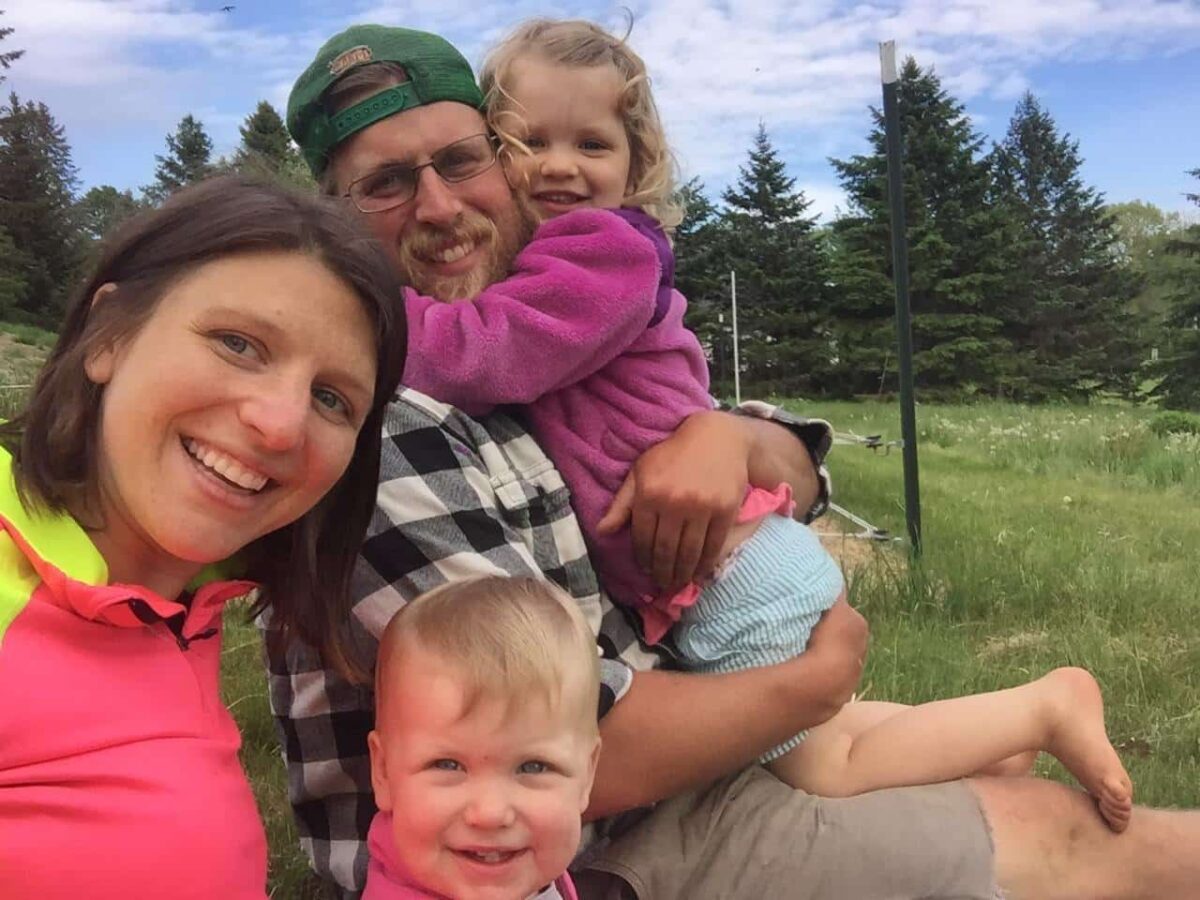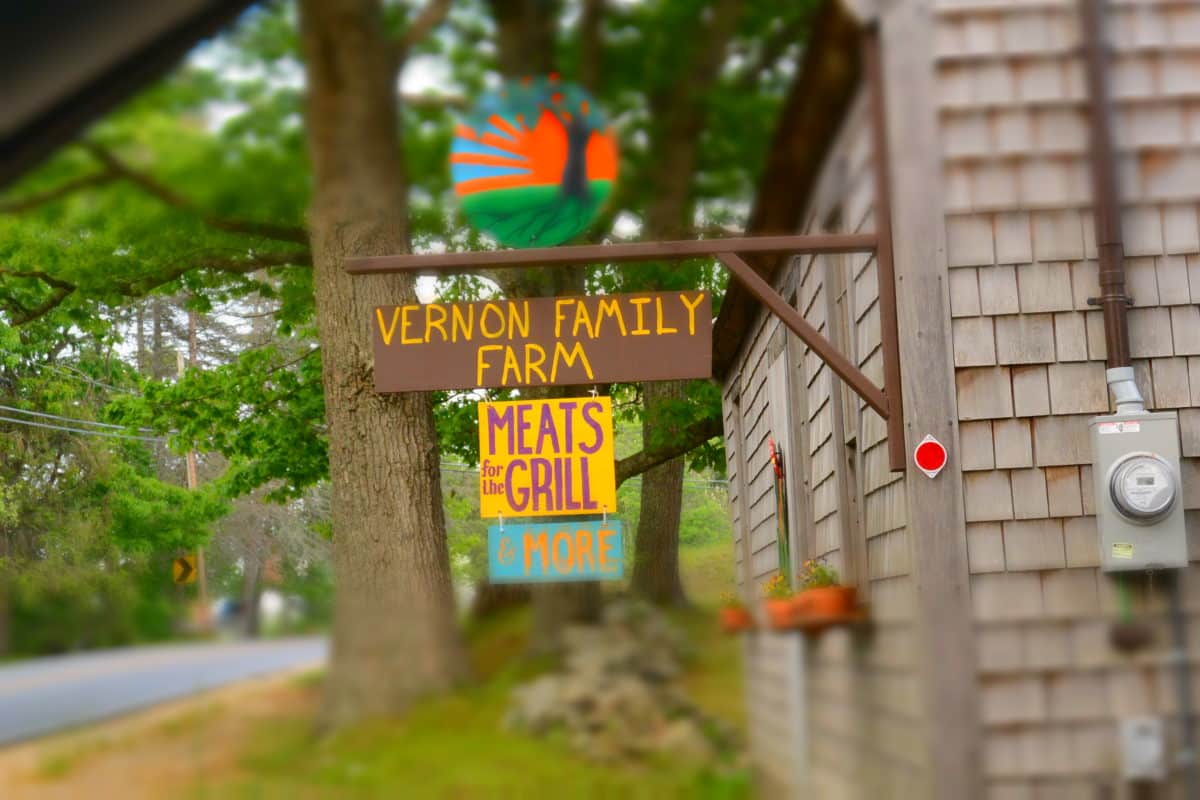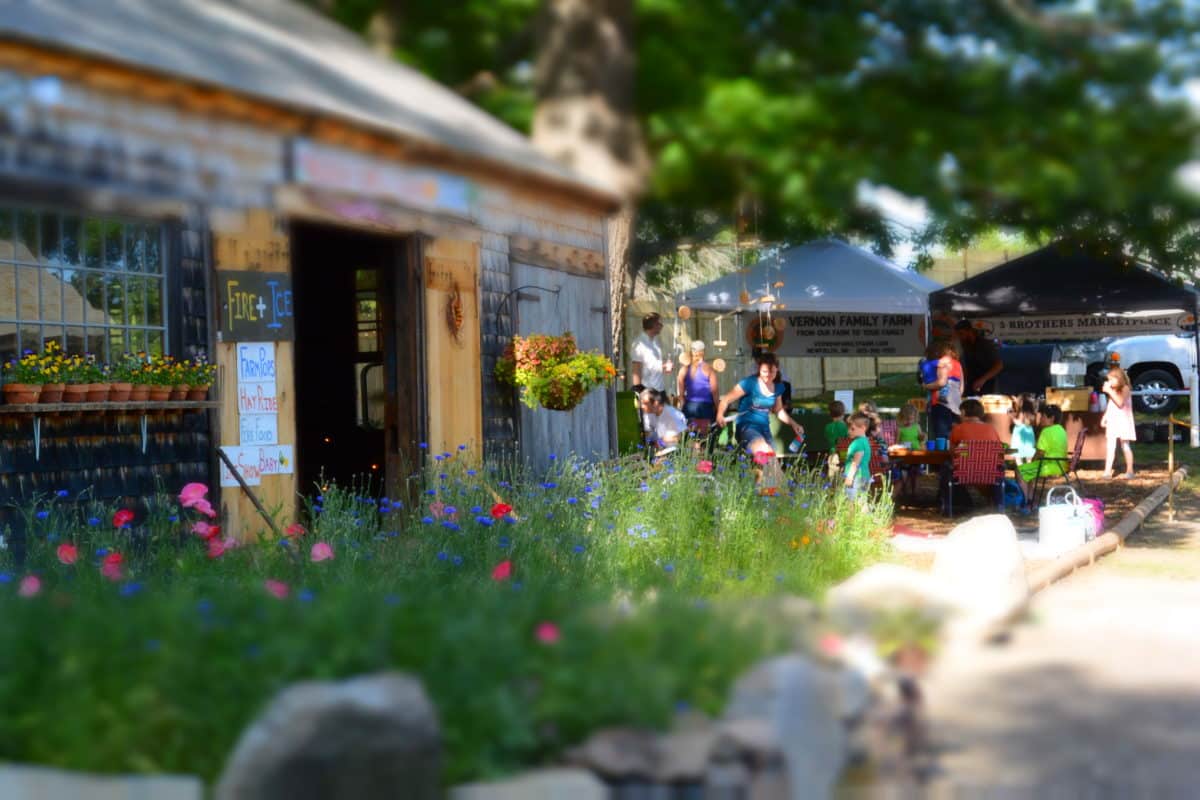Depending on where you live, for many people the term “family farm” connotes year-long physical labor, routine and staying put. You might envision children and adults working side by side in a field, or taking turns milking a cow or a goat, and rarely leaving the property.
To own and operate a family farm today requires traditional agricultural work with adjustments made for modern life. For financial reasons, or simply to pursue their interests, one or more family members may seek employment outside the farm, especially during the less ideal farming months (as in the winter months for New England). Whereas a century ago the woman in the family would work the land and the house only, now, and for the past several decades, she can have a full career outside the house.
When the harvest peaks and it is soon time to go back to school, the overall rhythm of a family farm shifts. Daily patterns and chores change as other demands take over. As family members are stretched in various directions, the focus of farming can alter dramatically.


Vernon Family Farm, located in southern New Hampshire, experiences this shift every year beginning at the end of August when Nicole, farmer and mother of two young children and another on the way, goes back to school as a full-time high school Spanish teacher. Her husband, Jeremiah, turns his attention toward the production and business side of the farm as well as more childcare responsibilities to relieve his wife who is writing lesson plans, grading assignments, and spending her days in the classroom instead of the fields. While they both actively maintain the farm, care for animals (chickens, pigs, bees) and carry out daily chores, their farming transforms into something different as the summer comes to a close.

Situated on 33 acres of conserved land along the Piscassic River, Vernon Family Farm is abundant with flowers, vegetables, chickens, pigs, bees and even mushrooms in a fruiting room. Brightly-colored hand-painted signs welcome visitors to the farm store where one can buy their products as well as those produced by neighboring farms. Eggs, dairy products, maple syrup, beef, pork, chicken, fruit, and dried and fresh flowers draw visitors to the store, as well as signature ice pops in flavors such as strawberry and strawberry kale.
Vernon Family Farm is not only a name. The use of the word “family” is not a gimmick or something quaint. It is a true family endeavor. While the Vernon children are too young to carry out major farm chores, they are very much a part of the identity of the farm – the face of the farm, if you will.
On any given day in the summertime, one might expect the following scene to unfold upon visiting Vernon Family Farm: two barefoot, towheads laughing and chasing each other into the farm store, or down the path to the property’s four acres of kale. When the children nap, expectant mother Nicole does not sit and put her feet up. Instead, she seizes the opportunity to suit up in her beekeeping outfit and attend to the hives. Come fall, though, this scene will not be as likely. The activity on the farm, both due to the change of season and primarily due to the return to school, changes the overall feeling of the place. I recently sat with Jeremiah, looking out across his lush acreage, and I asked him to speak about this shift.
“In general,” he said, “going back to school symbolizes the end of summer/beginning of fall. It definitely has an impact on how the farm feels, both from my perspective and from a customer’s perspective.”

He went on to describe the summer feeling as an active family farm.
“Nicole and the girls are here and interacting with customers. We sell ourselves as a family farm. That feels authentic to what we portray. When Nicole goes back to school, it feels much more like a production-based farm.” He explained that when school starts, things become more business-oriented.
“It feels like the peak of the harvest is happening, we are getting everything ready for storage, and thinking about fall and cover cropping and closing down the farm for winter. And all these things are happening at once while also planning for next year.”
Jeremiah emphasized the benefit of having access to a school community. He explained that having one of the farm owners as a teacher is an advantage for the community as well as for them.
“We get exposure to so many more students and potential employees and customers than we ever would if we didn’t have a connection to Nicole’s school.”
In only a few short years, Vernon Family Farm has made a name for itself. This has not happened simply because of its idyllic pastoral setting or its presence at farmers markets. People know about this farm because of the daily efforts and passion of both Jeremiah and Nicole.
They don’t sell to schools yet. They plan to. They are growing root vegetables and may sell to schools once their root cellar is complete. Vernon Family Farm may also offer field trip opportunities and elementary school workshops. Jeremiah has already visited the University of New Hampshire and given talks to students there.
Jeremiah and Nicole are both open-minded and excited about future projects, both during the school year and in the summer.
“Ideas are the most fun part about this,” said Jeremiah.
This family continues to prove that pursuing their shared passion as well as their individual careers makes their dream work. They envisioned life as farmers, and they are achieving their goals. While finding balance and adjusting to the shifts that occur at back-to-school time can be daunting, they face the challenge with determination and love – for each other, for the community, and for the land. While Nicole and the kids are going back to school in the fall, the education gained in the summer months on the farm provides an enriching experience that will continue to resonate throughout the year. ![]()
First published August 2016
